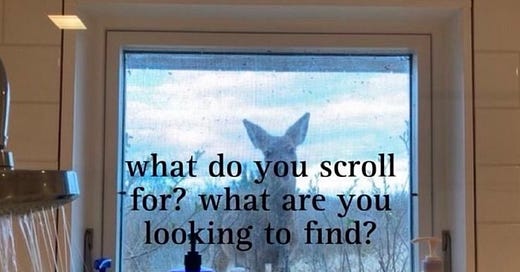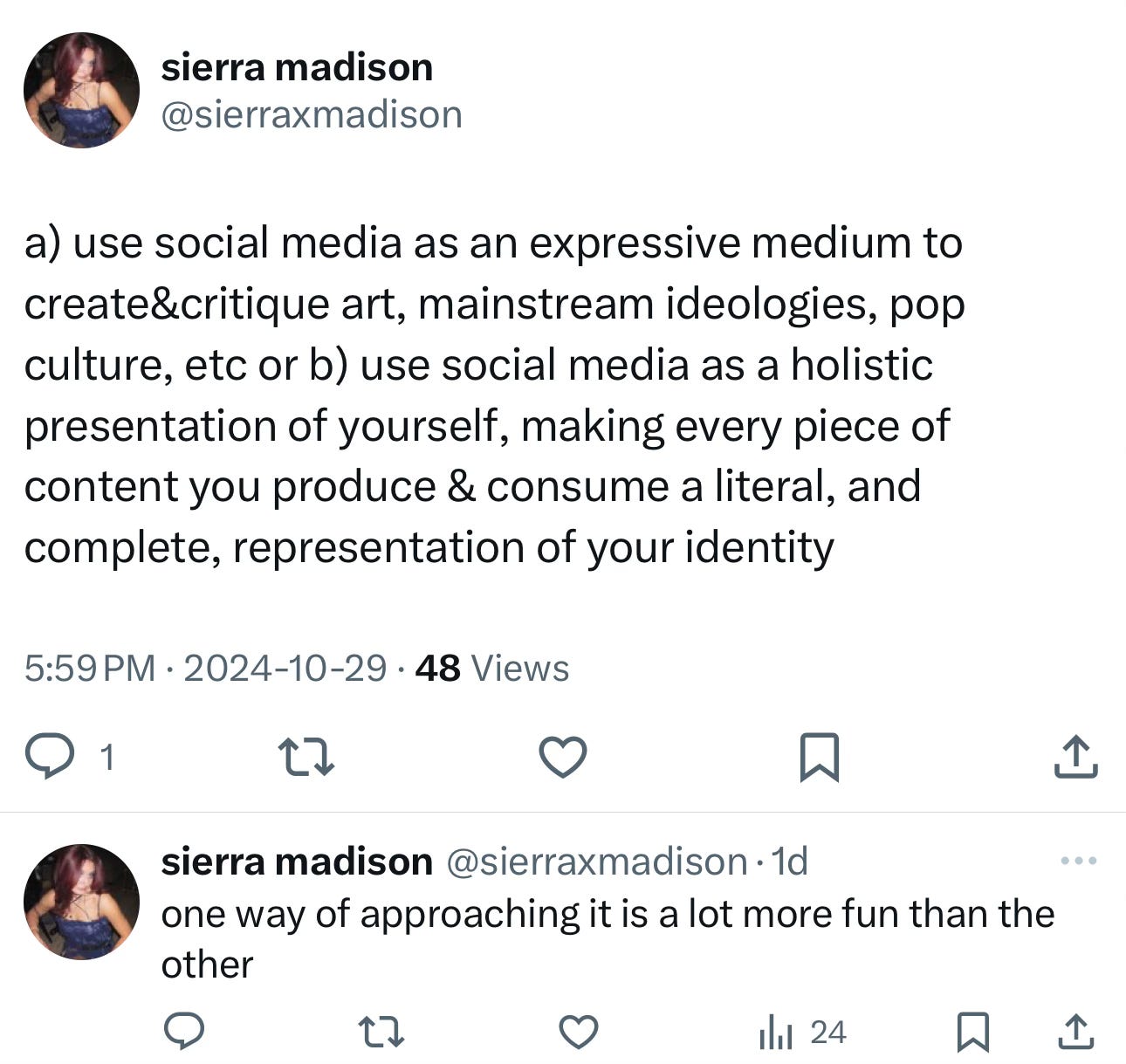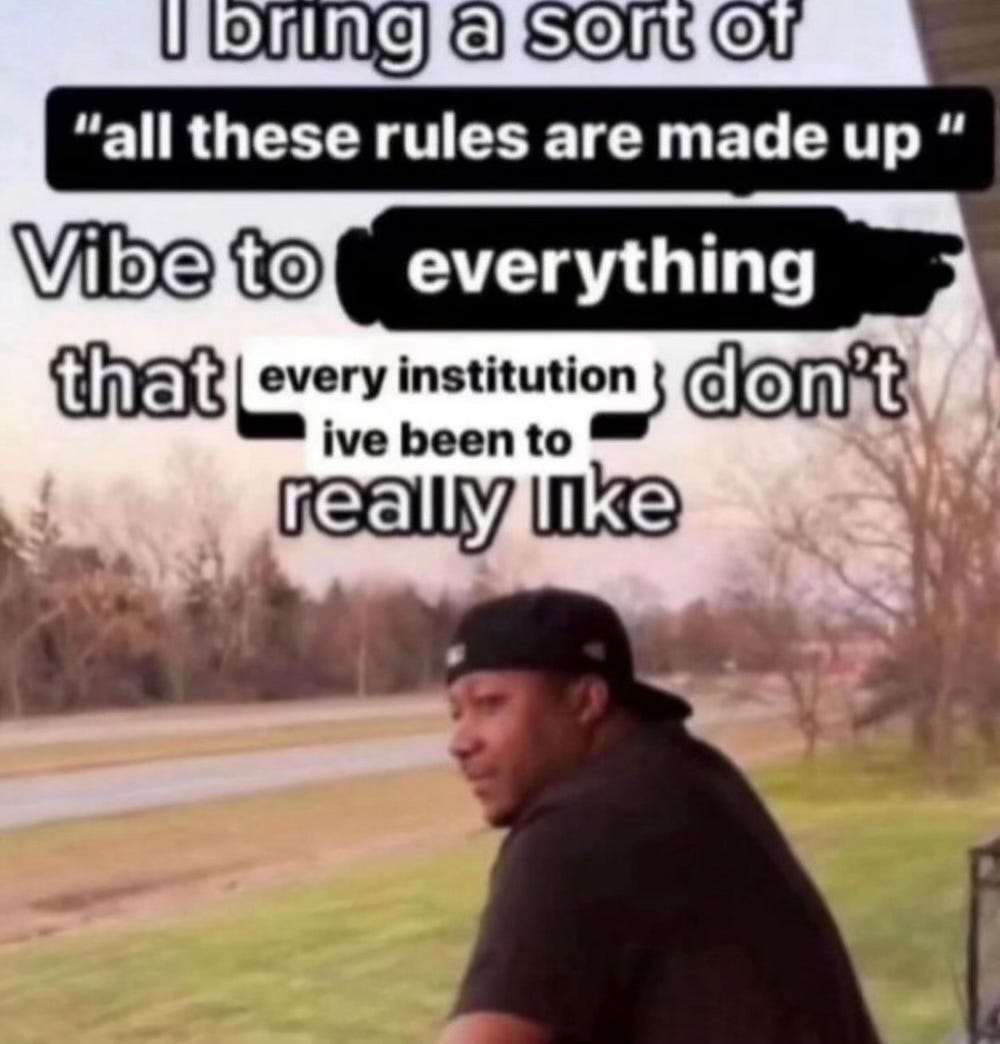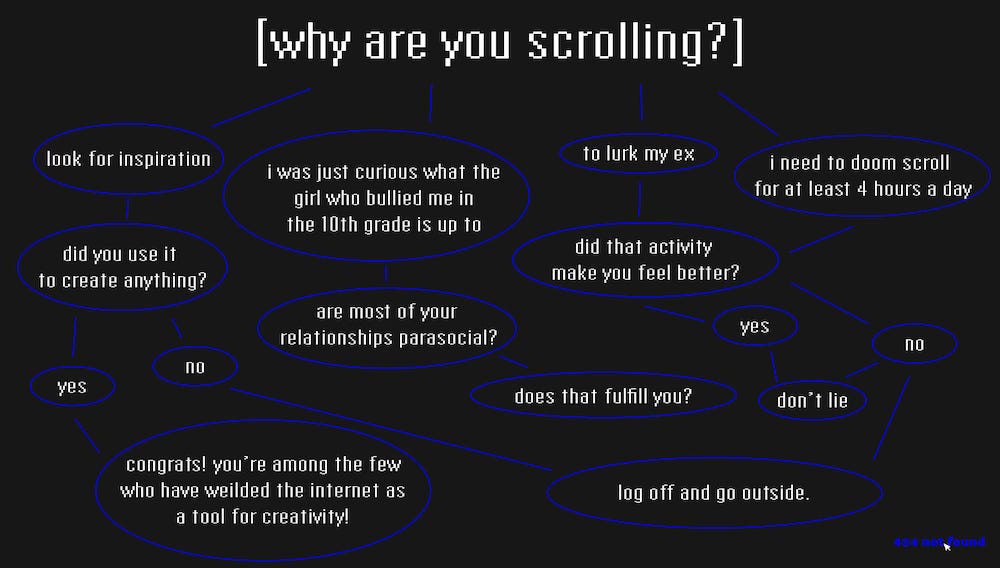Cambridge Dictionary defines addiction as:
An inability to stop doing or using something, especially something harmful.
addiction to: He developed an addiction to painkillers.
drug addiction: He had a problem with drug addiction, but has been better since getting treatment.
alcohol addiction: She suffered from an alcohol addiction.
gambling addiction: She developed a gambling addiction.
Notice how we typically reserve addictions for the individual: ‘He developed an addiction’; ‘she had a drug addiction’; ‘he went to rehab for his addictions’. We tend to see addictions—like most modern suffrage—as a self-inflicted lapse of judgment, a problem meant to be criticized and probed. Yet, we seldom acknowledge the collective addictions that plague global culture. If we do, it’s usually too late. It’s too uncomfortable to address—would require too much of us—so we do our best not to think about it. That being said, there’s a new addiction we’ve all fallen victim to as it sweeps across our globe at an alarming rate: Our desire for escapism.
We’ve become addicted to the pursuit of escape, running away from people, places, connections, real life—everything that makes up the human experience—all in some bizarre attempt to absound ourselves from our mortality.
In a world where avoidance is rarely punished, and social media provides a constant avenue for escape—while sanctioning a sense of faux-connection—why would anyone bother to expose themselves to anything real? Algorithms produce perfectly curated ‘For You’ feeds, taking notes of your interests, your passions, your fears: It’s more attentive than your ex and a hell of a lot less daunting than opening up to a stranger. Why risk discomfort when you can seek solace on a tiny screen, locked away in your room? The underlying truth that none of us want to admit is that escapist behaviours rarely leave us feeling fulfilled. Instead, these near-constant disappearances into the digital void—ever-accessible due to the continuous merging of the digital realm with the physical—have nurtured a neverending sense of collective discontentment within each of us: a void no amount of endless scrolling will ever fill.
I don’t disqualify myself from this observation: I’m always hungry for more. I’ve never been satisfied a day in my life. But don’t blame me, my incessant desire for abundance is a byproduct of the society I’ve been forced to mature in. Freud was wrong about many things, but he was certainly right when he stated that any unfulfilled desires will create an affluence of dissatisfaction within someone. Social media promises to cure you of your dissatisfaction (conveniently leaving out it was the sole creator of it) if only you keep swiping, scrolling, liking.
One of society’s foremost missions is to create a world completely enmeshed in the digital realm: Meta’s unceasing push toward virtual reality1, the steep incline in AI advancements2, and the venture capital industry’s decades-long interest in tech startups3, all signal a shift toward a new reality, one that’s weaponizing our collective dissatisfaction as a catalyst to plunge us deep within The Internet’s inescapable grip. Dissatisfaction is the most powerful driver in the shift toward an entirely digital future: “The right kind of dissatisfaction is a mindset of constantly questioning the status quo and striving for more-than-incremental change…dissatisfaction can be taught. Under the right conditions, it can be contagious.”4
Key Terms to take note of:
Escapism (noun): a way of avoiding an unpleasant or boring life, especially by thinking, reading, etc. about more exciting but impossible activities.5
The Digtial Age (noun): the present time, in which many things are done by computer and large amounts of information are available because of computer technology.
Globalization (noun): the increase of trade around the world, especially by large companies producingand trading goods in many different countries.
Collective Unconscious* (noun): the ideas, beliefs, and feelings that are shared by people in society and that help unite it
*When I refer to The Collective, I am tying it into the framework of the collective unconscious first introduced by Carl Jung
The Narcotic Effect Of Modern-Day Escapism
Escapism isn’t an inherently evil practice, escapist activities can provide temporary relief from stressors, and help individuals regulate and manage their emotions, particularly when faced with personal, professional, and/or global distress6. The desire to escape hardship is no new phenomenon—we’ve always been prone to disassociation. During the Great Depression—when widespread economic hardship, unemployment, and social instability prevailed across the nation—many sought refuge in escapist forms of entertainment, such as cinema and radio shows7. These distractions allowed individuals to momentarily dissociate from their struggles while fostering a sense of community around the shared activity; the collective (not the individual) banded together to grapple with a period of profound uncertainty and mitigate feelings of powerlessness and despair.
Today, with its plethora of options, the digital realm offers the modern equivalent solution to disassociation: an escape from the emotional and psychological strain of a rapidly changing world.
The digital age is characterized by an overflowing stream of information, constant comparison, and an overstimulated attention economy, resulting in widespread dissatisfaction and isolation. Digital escapism provides individuals with a never-ending distraction from the pressures of real life, just as cinema and radio did during the Depression. However, those activities were short-lived—a couple of hours at most—but with our phones attached to our fingertips, we seek out social media to keep us regulated, even from the smallest discomforts. Look around you—whether you’re sitting on public transit or waiting in line to order food, the majority of people beside you are scrolling on their phones, liking a photo of their senior year crush on Instagram or DMing hate to a celebrity. Yes, they’re standing right beside you—you could reach out and poke them—but they aren’t there. Their mind is adrift, entrenched in a world built upon a cloud.
This ability to remain connected to the digital collective, whether in public or from the comforts of your home, only intensifies inner feelings of disconnection. Your reality begins to exist in a world separate from your physical body, trapped in your mind as you get sucked further into the digital realm, haunted by parasocial relationships and Reddit threads. Don’t blame yourself, technology, and by extension, the digital sphere, originally promised to soothe all your worries. Maybe we were too trusting, maybe we should have asked more questions. But, now we’re here, standing in a society completely dishevelled, attempting to deal with the myriad of new societal problems social media has ushered in.
We can’t continue this harping existential analysis of The Internet without bringing up Marshall McLuhan, whose theories and research have influenced my understanding of modern-day media since my introduction to him in my first-year media class. Media students know him well—his book, Understanding Media: The Extensions of Man, originally published in 1964, is one of the most influential texts in the study of modern-day media. Plus, he’s Canadian. In the book, McLuhan proposes that a communication medium itself, not the messages it carries, should be the primary focus of study. This concept has since been applied in discussions of various technologies such as television and The Internet8.
His exploration of media as an “extension[s] of man” provides a critical structure in understanding social media’s role in fostering a culture plagued by escapism and dissatisfaction. He argues that every medium reshapes the human experience by extending a novel sense of capability, fundamentally altering how we interact with the world.
Can you imagine if you woke up tomorrow and no one’s phones wouldn’t turn on? If The Internet just ceased to exist? It would seem like the world had ended, because, in a way, the world we have come to know would be over. We would have to rebuild our understanding of existence. Our societies would fundamentally alter. Social media positions itself uniquely, as both a digital extension of communication and a tool for self-expression. This intersection magnifies connection just as much as it magnifies competition. We’ve been given access to everything, everywhere, all of the time, with little to no regulation.
One of the most important hallmarks of globalization—which has led to an incredible acceleration of communications—is the digital revolution. It has transformed our planet into a synchronous world where spatial distances have lost meaning. By collapsing time and space, and placing us in a boundless, interconnected world, the lines between public and private—real and curated—have become forever blurred. Unlike the communal modes of escapism prevalent in the Great Depression, digital escapism is an isolating experience that perpetuates our society’s increasing mental health epidemic9 as it shifts the collective toward a transcendental existence, where we engage with one another through our carefully curated, digitalized selves. Here, we find ourselves constantly exposed to the idealized representations of others, which fosters a deep sense of dissatisfaction within us due to the unnerving amount of pressure we feel to match, or exceed, the unattainable standards presented to us.
Modern society is characterized by a frivolous acceleration of technological and cognitive progress which has set off great cultural shockwaves, accompanied by massive moral and political crises.
This can be explained by the narcotic effect of media that McLuhan warns of: He states that the repeated use of a medium numbs its audience to its deeper implications. In the case of social media, this manifests in an inherently addictive feedback loop—the dopamine rush of engagement, likes, shares—from which our collective dissatisfaction stems. As Christian Buckley put in 2015, “We have become a society that is in an almost constant state of dissatisfaction, discarding tools, technologies, ideas, and even people as we quickly follow whatever happens to be shiny and new.”10
Social media offers itself as a faultless mode of escapism. Yet, this paradoxical refuge perpetuates the dissatisfaction it claims to alleviate, mirroring the cyclical process of McLuhan’s observation in which every medium simultaneously amplifies and amputates. Social media extends our ability to connect yet amputates our sense of self-satisfaction, leaving the collective in a constant state of yearning and comparison.
Globalization And The Attention Economy
How will we be immortalized when history looks back on the digital age? I think we will be remembered as a society so afraid of its own humanity that the collective spends countless hours a day in a haze of pixelated escapism. However, I hope they reflect on our generation with sympathy—our desire to escape is not without reason, we’re simply attempting to alleviate the weariness and stress provoked merely by existing in the present day. However, we can’t ignore the fact that these constant distractions have resulted in a collective that struggles to soothe and cope with life in healthy ways.
Technology, a foundational pillar of globalization, has gifted us with global connection but at what cost? We’re seeing unprecedented levels of societal discontent and dissatisfaction—overwhelming and paralyzing in equal measure.
sums it up well, “Spending an increasing amount of time online, our digital lives have become part of our daily routine. I’m not sure if you have found your balance, but I for sure have not until very recently. I felt like wanting (to see, hear, know) everything, but feeling exhausted by the weight of it all. I’d feel almost burnt out, distracted, worn out by dissociation. I was soaking up content like a sponge and it took my energy away.”11We are in an unprecedented attention economy12, a concept first introduced by Herbert A. Simon in the 1960s. It is characterized by information overload and the scarcity of human attention. The digital age has exacerbated this issue—people go to great lengths to secure the attention they so deeply crave. From dating apps and social media to content creation, these seemingly harmless Internet activities have become socially acceptable ways to seek validation. However, in an observation no one saw coming, having unlimited access to attention from the isolation of your bedroom may be more harmful than healthy. Who would have thought??? Our parasocial relationships foster no meaningful connections and leave you feeling just as much discontentment as you had before logging on. These gifts of pseudo-attention from strangers online do little to nourish. If anything, they deplete your self-worth because, eventually, you realize the hoards of anonymous fans you’ve garnered online adore your perfectly curated digital self—your idealized self.
It’s time we address the elephant in the room: our collective addiction to the Internet has morphed into a toxic, dysfunctional relationship that we’re unable to escape from (pun intended).
Funny isn’t it? Ironically, we turn to technology to escape our lives only to immerse ourselves in the curated glow of other people's lives. Our reluctance to face discomfort has fostered unprecedented collective challenges, forcing us to stagnate in the cycle of avoidance and dissatisfaction. We’re unable to unplug in the same ways we used to; the Internet used to be a place to visit—computers were large and heavy, sectioned into a home office—now it remains glued to us, our palms always aching with the weight of it.
Can We Break Free?
Let us end by highlighting McLuhan’s most famous assertion: “the medium is the message”, which perfectly highlights the intrinsic role that social media plays in shaping our cultural norms and values. The medium—an endless stream of curated content, notifications, updates—has conditioned us to feel perpetually behind or incomplete, resulting in a culture bound together by collective dissatisfaction, driven by escapism. However, our attempt to escape is always futile: we seek validation and fulfillment through the very medium that erodes our contentment.
Social media is no longer just a tool for communication—it has become a secondary world actively merging with reality and redefining how we perceive ourselves and others. One must wonder: are we stuck in a vicious cycle that has no end? I hope not, but I believe the greatest challenge of the 21st century will be figuring out a way to break free from this cycle—if we don’t, I fear humanity’s pursuit of happiness will remain in vain.
404 not found is a reader-supported publication produced entirely by sierra madison. paywalls are no fun, but rent must get paid. i am forever grateful for all those who contribute, your generosity keeps this newsletter going <3
AltIndex. “Meta’s Push into VR, AR, and AI: Should Investors Buy?” Published September 26, 2024. Available at: https://altindex.com/news/is-meta-a-buy
Yuliya Chernova. "Pro Take: Vance Tried to Boost Midwest, but Tech Wealth Remains Concentrated on Coasts." Wall Street Journal. Published May 16, 2024. Available at: https://www.wsj.com/articles/pro-take-vance-tried-to-boost-midwest-but-tech-wealth-remains-concentrated-on-coasts-c487c6a3.
Marc Vartabedian. "Pro Take: AI Is Hogging the Venture Pie." Wall Street Journal. Published August 15, 2024. Available at: https://www.wsj.com/articles/pro-take-ai-is-hogging-the-venture-pie-0d195489.
George Westerman. “The new digital mandate: Cultivate dissatisfaction.” MIT Sloan Management Review. Published February 16, 2018. Available at: https://sloanreview.mit.edu/article/the-new-digital-mandate-cultivate-dissatisfaction/.
All definitions are from the Cambridge Dictionary.
Silver Lake Psychology. "5 Reasons Why Escapism Is Important for Mental Health." Published May 18, 2021. Available at: https://silverlakepsychology.com/5-reasons-why-escapism-is-important-for-mental-health/.
ItsMyAmbitionz. "Hardship and the Importance of Escapism." Medium. Published September 10, 2019. Available at: https://medium.com/@ItsMyAmbitionz/hardship-and-the-importance-of-escapism-6f50b7ac3baf#:~=During%20the%201930's%20America%20was,the%20obvious%20forms%20of%20escapism.
McLuhan, Marshall. “Understanding Media: The Extensions of Man”. McGraw-Hill Education. Published 1964.
[PubMed Central (PMC).] "Research Article on Media Consumption." Available at: https://pmc.ncbi.nlm.nih.gov/articles/PMC10357115/.
Christian Buckley. A Technology Culture of Dissatisfaction. LinkedIn. Published October 29, 2015. Available at: https://www.linkedin.com/pulse/technology-culture-dissatisfaction-christian-buckley/
Hannah Cao. Digital feng shui. Hannah’s Archive. Published September 24, 2024. Available at: https://substack.com/@capuletsbirdie/p-149195877
United Nations. "The Attention Economy: Impact and Challenges." Published February 2023. Available at: https://www.un.org/sites/un2.un.org/files/attention_economy_feb.pdf.












we need this. i needed this. thank you for putting all of this into words, like i know and we all know “PHONES ARE BAD” and “ITS THAT DAMN PHONE” but yet we’re still stuck to these devices like they’re an extra limb of our body. this essay was so well written and researched, and yes we should all log off and go outside more ❤️